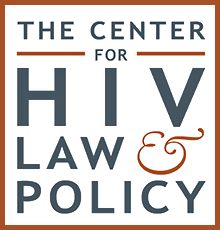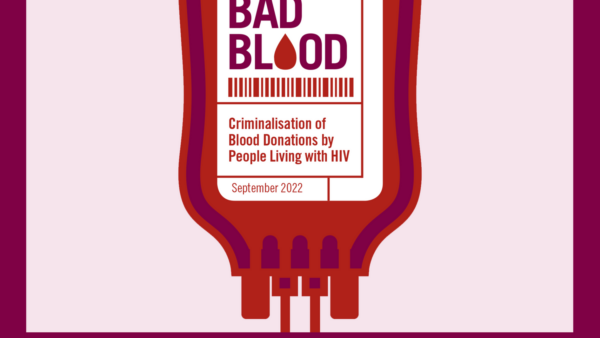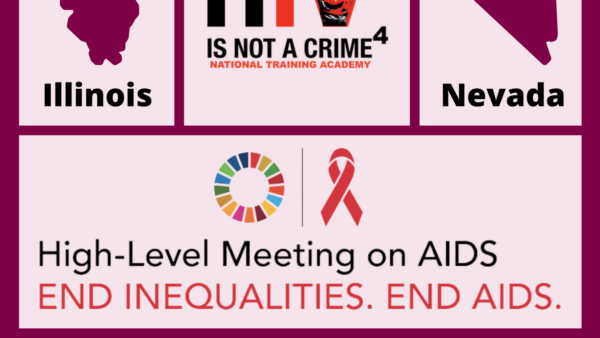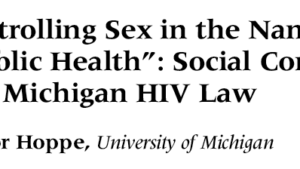Overview
Michigan criminalises HIV non-disclosure prior to sex through a provision which defines several levels of culpability depending on whether the act was committed with intent to transmit and whether transmission took place. The state’s HIV non-disclosure law was reformed in 2018; however other laws can also be used to both punish and regulate people living with HIV.
The state’s original HIV criminalisation law was enacted in 1988 and made it a felony offence, punishable by up to four years’ imprisonment, for anyone living with HIV to have sex with another person without prior disclosure of their status. Sex was defined broadly to include oral sex and any ‘sexual penetration, however slight’ of any part of the body into the genital/anal opening of another, covering conduct which carried little to no risk of transmission, and actual transmission was not a required element of the offence.
The original conception of the law withstood constitutional challenges, such as in People v Jensen, on the grounds that it was overly broad, violated the right to privacy, and lacked a specific intent requirement. Nevertheless, advocates pushed for reform through the legislature, with the Michigan Coalition for HIV Health and Safety working closely with the Michigan Department of Health and Human Services. This led to House Bill 6020 being enacted in December 2018, modernising Michigan’s HIV law.
The reformed law continues to criminalise sex without disclosure by people living with HIV, but now limits the provision to vaginal and anal sex. It also established tiers of culpability based on intent and transmission. Firstly, it is a felony offence, punishable with up to four years’ imprisonment, to engage in sex without disclosure with the ‘specific intent’ to transmit HIV. The same punishment is provided for sex without ‘specific intent’ but where there is ‘reckless disregard’ and transmission occurs. The next level makes it a misdemeanour, punishable with up to one year imprisonment and a fine, to engage in sex without disclosure with ‘reckless disregard’, but where transmission does not occur. Notably, the law explicitly states that sex without disclosure is not an offence where the person is adhering to a treatment regimen that renders them virally supressed.
The requirement for intention or transmission for a felony prosecution is also a step closer to international guidelines, though the lack of intent required for the reckless disregard section falls short of these standards (though the ruling in People v Jensen found that this is not unconstitutional). Removing sexual acts that carry little to no risk of transmission, such as oral sex, from the ambit of the law reflects an up-to-date understanding of transmission risks. However, although the defence of viral suppression reflects latest science, there is a danger that only criminalising people who have not achieved an ‘undetectable’ viral load will disproportionately impact people who are already marginalised with no or limited access to medical care. And since the law still makes no allowances for the use of condoms, the only defence for people who are not virally suppressed is disclosure of status, which can be difficult to prove.
Other aspects of Michigan’s HIV law remain unchanged by the 2018 reform. Donations or sales of blood when HIV-positive are still prohibited, regardless of intent or actual transmission (see our report, Bad Blood, for a global analysis of the criminalisation of blood donations). Additionally, the general criminal law against ‘bioterrorism’ has been used as the basis for at least two prosecutions of people living with HIV for perceived ‘exposure’. Both cases involved ‘exposure’ to saliva, though only one resulted in conviction on the basis that the saliva contained blood, which was considered a ‘harmful biological substance’ (see CHLP report for case details).
There are other provisions which regulate the medical treatment of people living with HIV. People convicted of sex work offences are required to undergo HIV testing, the results of which may lead to additional charges for non-disclosure if found to be HIV-positive. Testing may also be imposed on an arrestee, inmate, parolee, or probationer at the request of a law enforcement officer if the officer sustains an open wound exposure to the fluids of the person. The law also permits people living with HIV to be compelled, on threat of fines or imprisonment, to participate in education, counselling, treatment, or quarantine, if deemed a ‘health threat’ to others based on a perceived unwillingness to prevent ‘exposure’.
A 2015 study suggested that the original law was disproportionately enforced against white women and Black men who have sex with women. We are aware of more than 50 cases in the state, mostly under the original law, but arrests have continued since the 2018 reform, though the changes in the law have been successful in preventing some prosecutions. For instance, in a 2019 case charges were dropped against a woman arrested for HIV non-disclosure after she was able to show that she had an undetectable viral load.
Following the 2018 reform, advocates have been calling for people convicted under the old formulation of the law to be pardoned where their conviction would not be possible under the revised law. This has not yet materialised.
For a detailed analysis of HIV criminalisation in Michigan, as well as all other US states, see the Center for HIV Law and Policy report, HIV Criminalisation in the United States: a Sourcebook on State and Federal HIV Criminal Law and Practice.
Laws
Michigan Public Health Code § 333.5210
Intercourse With Specific Intent or Reckless Disregard to Infect With HIV
(1) A person who knows that he or she has the human immunodeficiency virus (HIV) who engages in anal or vaginal intercourse with another person without having first informed the other person that he or she has HIV with the specific intent that the uninfected person contract HIV is guilty of a felony.
(2) A person who knows that he or she has HIV who, without having first informed the other person that he or she has HIV, engages in vaginal or anal intercourse, and transmits HIV to an uninfected person causing that person to become HIV positive, acts with reckless disregard and is guilty of a felony.
(3) A person who knows that he or she has HIV who, without having first informed the other person that he or she has HIV, engages in vaginal or anal intercourse, and who acts with reckless disregard but does not transmit HIV, is guilty of a misdemeanor punishable by imprisonment for not more than 1 year or a fine of not more than $1,000.00, or both.
(4) A person who knows that he or she has HIV who is adherent with the treatment plan of an attending physician and has been medically suppressed per accepted medical standards is not acting with reckless disregard.
Michigan Public Health Code § 333.11101
Prohibited Donation or Sale of Blood or Blood Products; Notice of Violation
An individual shall not donate or sell his or her blood or blood products to a blood bank or storage facility or to an agency or organization that collects blood or blood products for a blood bank or storage facility knowing that he or she has tested positive for the presence of HIV or an antibody to HIV. A blood bank or other health facility to which blood or blood products is donated in violation of this section immediately shall notify the local health department of the violation. The local health facility will immediately proceed under part 52.
Michigan Penal Code
§ 750.200h Definitions
(g) “Harmful biological substance” means a bacteria, virus, or other microorganism or a toxic substance derived from or produced by an organism that can be used to cause death, injury, or disease in humans, animals, or plants.
§ 750.200i Unlawful acts
(1) A person shall not manufacture, deliver, possess, transport, place, use, or release any of the following for an unlawful purpose:
(a) A harmful biological substance or a harmful biological device.
(…)
(2) A person who violates subsection (1) is guilty of a crime as follows:
(a) Except as provided in subdivisions (b) to (e), the person is guilty of a felony punishable by imprisonment for not more than 15 years or a fine of not more than $10,000.00, or both.
(…)
(c) If the violation directly or indirectly results in personal injury to another individual other than serious impairment of a body function or death, the person is guilty of a felony punishable by imprisonment for not more than 25 years or a fine of not more than $20,000.00, or both.
(d) If the violation directly or indirectly results in serious impairment of a body function to another individual, the person is guilty of a felony punishable by imprisonment for life or any term of years or a fine of not more than $25,000.00, or both.
(e) Except as provided in sections 25 and 25a of chapter IX of the code of criminal procedure, 1927 PA 175, MCL 769.25 and 769.25a , if the violation directly or indirectly results in the death of another individual, the person is guilty of a felony and shall be punished by imprisonment for life without eligibility for parole and may be fined not more than $40,000.00, or both.
Further resources
Not all laws used to prosecute people living with HIV in this state are included on this page. For a comprehensive overview and analysis of HIV-related criminal and similar laws and policies, visit The Center for HIV Law and Policy
Press Release from Michigan Coalition for HIV Health and Safety explaining the changes in the new HIV-specific law which came into effect in January 2019.
A series of HIV and STD related laws were enacted in December 2018. This document highlights key facts about these changes.












